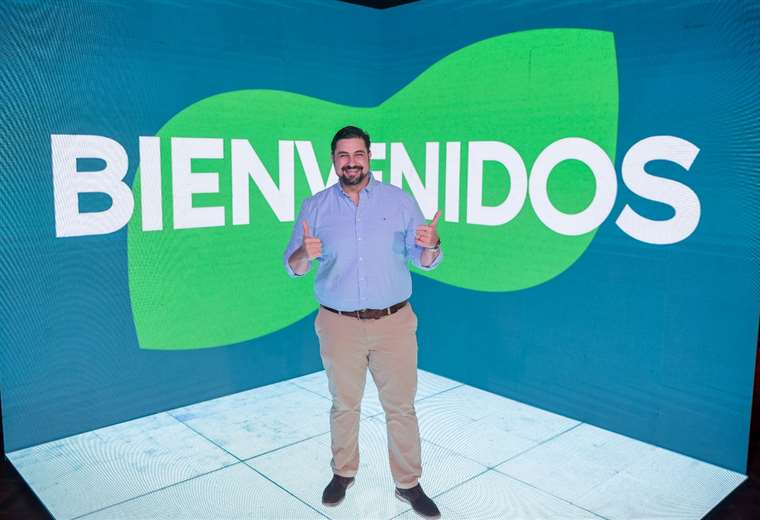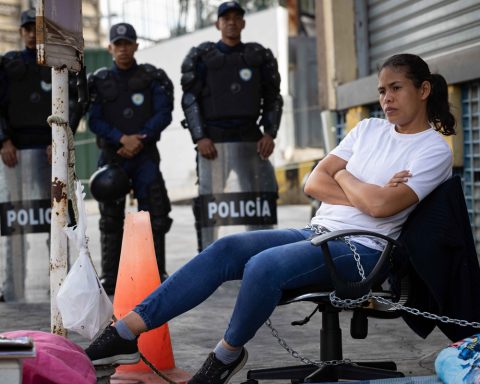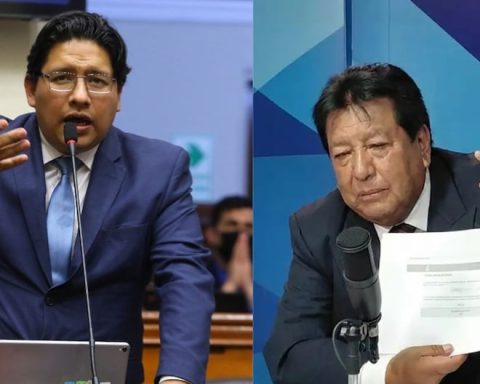November 12, 2024, 4:01 AM
November 12, 2024, 4:01 AM
The multinational Alicorp of the Romero Group, reported the closing of the purchase and sale transaction of its milling business (refined flour and oil made from sunflower and soybean seeds) in favor of ASAI Capital Holdings Ltda. Thus, the group presented Industrias de Aceite SA (IASA) and Diego Moreno is the new general manager.
_In the context of the purchase of the milling business from Alicorp by the ASAI Group, what is the progress?
The ASAI Group has purchased Industrias de Aceites SA (IASA), the company that has more than 80 years in the grinding market in Bolivia, where the main objective we have in the short term is precisely the assurance of the supply of raw materials, the transformation.
This process includes two plants, the Industrial Park plants, the Warnes plants in the processing of grains, both soybeans and sunflowers, soybean cake for animal and sunflower nutrition, as well as the crude oil that we will sell in the market. local in a supply contract with Alicorp and also the export market for the countries of the Andean region.
That’s the model. As ASAI takes office on November 4, it has been the date when control of the company is taken, undoubtedly first of all we want to make the transition in a timely manner with the entire management team in charge that has come from Alicorp and we will surely be looking towards 2025 for growth opportunities in different product lines, but always connecting the field with global markets.
_ What are the markets to which the oil is sold at this time? I understand that Peru and Colombia are very important, but has there also been thought about opening markets to other regions taking into account that we are already within Mercosur?
When you look at production, let’s say, here we are talking a lot about crude oil, like Iasa, we will not be in the production of refined oils, that is done by Alicorp and the Bolivian market, but what we have as an export market has a lot to do with it. with the Andean market, both Colombia and Ecuador as main destinations and I believe that this will continue for now.
Mercosur is a market that also produces, both Brazil and Argentina are large producers of oilseeds and soybeans, so we see greater attractiveness in supplying the Andean market with our export products and not so much to Mercosur.
_In addition, from the milling business at Alicorp, have you kept most of the staff?
Yes, what we mentioned there is that the purchase has to do with the grinding plants. Alicorp has a refining plant that is in the city of Cochabamba, that continues to be property of Alicorp, they have created, constituted the company Aliconsumo and they are going to operate that asset and the 100% milling assets that are the Santa plants. Cruz and Wuarnes, are assets that Asaí has purchased within IASA, as well as the collection centers.
We have eight collection centers dispersed in the productive areas and that is part of what has been purchased from the Asaí group.
-However, this business is international in scope, I understand that they have not only purchased Bolivia, but also operations in other countries…
It’s right. The purchase operation has to do with the milling business that Alicorp managed. This business encompasses not only oil industries in Bolivia, but also R-Trading. R-Trading is a company incorporated in Peru, of which the oil industry is the majority shareholder. R-Trading has more than 25 years in the Peruvian market, marketing and selling mainly soy and sunflower cakes for the animal nutrition segments in the Peruvian market.
Currently, it is a leader in that market in the sale of soy cakes, which is why it is an emblematic company that helps us in this process of internationalization or sales to the destination market, having distribution in such an important market due to its proximity and the sale of the logistics that we have there.
_ One of the projects that the national government has proposed has to do with biodiesel. Has there already been any approach from the Government to buy oil from you that is intended for biofuel?
Yes, the issue of biofuels, we review it on a sectoral basis. We understand that the issue of biofuel is something that we handle through the National Chamber of Oil Industries, Caniob, where there have been understanding meetings with the Government to see how the supply is going, if it is going to happen and how it is going. to be the supply. But that is something that is still, let’s say, in a review stage throughout the entire industrial sector together with the Ministry.
_ In addition to being in charge of milling, do you also have fields where you are producing soybeans?
No. Oil Industry (IASA) does not have production fields. We are dedicated to the marketing and transformation of grain, mainly soybeans and sunflowers, but we additionally have a business unit that is agricultural inputs where we sell, we deliver the entire portfolio to the producer so that he can plant. We have seeds, fertilizers, phytosanitary products for the entire crop stage, we see this as an opportunity to be close, to also bring solutions to the field and in a certain way support the primary producer to improve their productivity through quality inputs. That is something that we will continue to promote, we will continue to work very closely with the farmer to be able to help them develop. I believe that one of the important issues we have in Bolivia is to increase productivity and this area of agricultural inputs also has that objective as such.
_You already have experience in multinationals in the field of agro-exports. What significant changes do you think you will implement under your leadership at IASA?
Look, what we have a lot of is the conviction that we must maintain credibility in international markets, I think that is something that we have earned for many years as a company, being the main industry that supplies export markets. That is something that we are going to continue to have among the company, managing a company with great seriousness, with great confidence, with great ethics, towards the producer, working closely with the entire team that is continuing with me in this new challenge of this relaunch of the oil industry, where we will be continually looking not only for opportunities, but also carrying these expectations of how we contribute to growing the market, the productive chain and also developing the producer, but also all the businesses in the export chain .
_It has been analyzed within strategic planning that the environment is challenging and has to do with the scarcity of fuel and dollars. They have not even been able to harvest more than 5% of the winter campaign. Have you taken these types of factors into account to assume this leadership and move the company forward?
Without a doubt, at the moment in which we find ourselves, as everyone knows, in a moment where it requires being very connected, with a lot of effort, where we know the fuel problem, a problem that compromises the field in a certain way, I think that the Import initiatives must continue to be reviewed, both for the producer and for the entire logistics chain. These are issues that undoubtedly concern this sector, this industry, and I believe that we are not exempt from that.
What new investors do is, they understand the dynamics, they understand where we are and I think we have to continue developing and seeing how we get out of this situation, but as a country. On the issue of dollars we are not exempt from that, but I believe that the only way out that we have as an economy, as a country, has to do with growing in our export programs, growing in this agricultural production chain, which can, in a certain way , bring higher levels of exports to the entire economy. That is something that we want to continue promoting, we want to develop it, we need the entire team that is with us in the field, working hand in hand, but above all it is, let’s improve productivity.
I think that if we do not work on improving productivity, that we have a year with better weather, as we have had in 2024, which was a pretty bad year for the countryside, I think that is something that we have to be following very closely. And we are not exempt, but without a doubt we will be contributing our role to this improvement and working together with the different authorities, unions, segments, to see the opportunities that we can contribute moving forward.
– Do you have any plans planned for the domestic market, taking into account that the oversupply of soybeans impacted international prices?
Yes, our export and production business will always be highly influenced by the international market. Without a doubt, 2024 has been a year where, unlike Bolivia, where we have had lower production than historically, we have had very good competition in both Brazil and the United States, which means we have an international market where prices have fallen. to what we were on average in the last five years. But I think those are cycles that we always have in international markets. And what we have to do is, again, from the role of production in Bolivia, see how we can really compete in those markets, but, above all, working very closely, I insist on this, because we have to work close to the farmer, work close to the logistics chain to be competitive in international markets.
_What specific strategies are you considering to expand IASA’s access to global markets?
Well, we are going to work in these next few months on reviewing what opportunities we have, not only in the soybean or sunflower sectors, but also to see what other products, what other opportunities we see as a result of the ecosystem. We have an industry, we have important operational capabilities and what we want, together with the board, is to review opportunities for growth, development of other crops and, surely, in our planning for 2025 we will be seeing what opportunities there are and we will present to the market, the producers, to the extent that we are aware of being able to move forward and, above all, being able to develop new production chains.
_What do you consider to be the main challenges of 2025 that you could face as IASA?
For 2025, I think it is a year where expectations are very high regarding the recovery of agricultural production. I think that when we talk about normal agricultural production it is of greater volume. It means that, for this company and the entire export sector to be able to maintain the pace, we obviously need to have the fuel chain, to be able to have expedited routes, we are just going through a period of major blockades and that is not good, That is not positive for this sector that needs to dynamically produce, transform and export continuously; because this is an industry that moves 24/7, every day when we have grains to grind, transform and export.
I think that the challenges are going to be operational continuity, the recovery of efficiency in the plants as a result of an expectation of greater production next year and without a doubt that is what we have to look for in 2025.
_How many direct jobs is IASA generating at this moment? Between direct and indirect.
Look, after the separation we had with AliConsumo, which is the liquor company, IASA today has between 500 and 550 employees directly in the production plants, administrative team and it is an important role and a responsibility that we also have towards the customers. collaborators to maintain the equipment, maintain sources of work, but above all bring productivity to our plants and be able to fill our capacities.
















